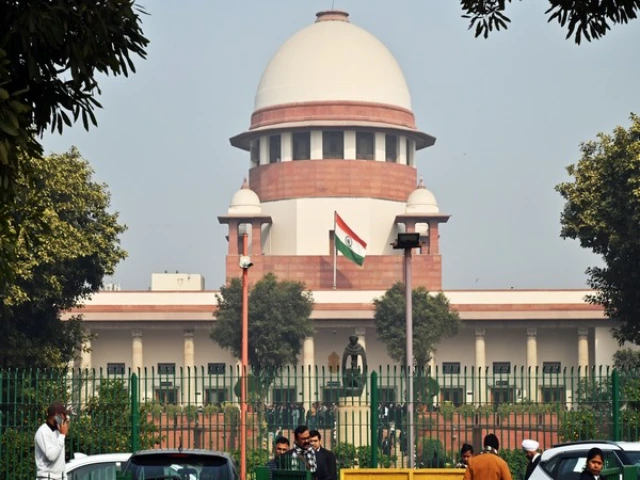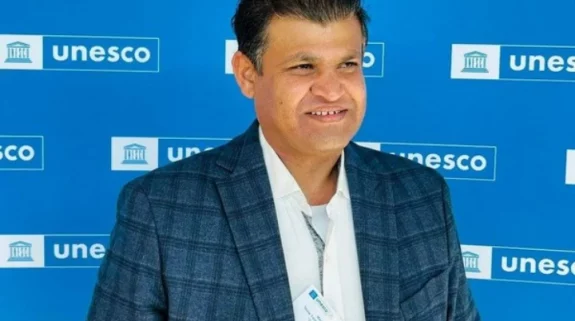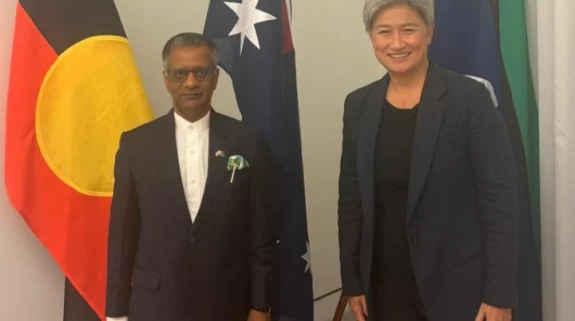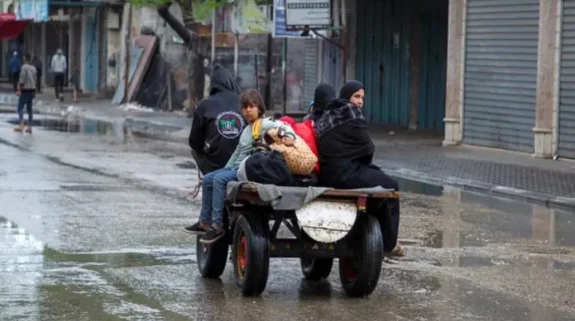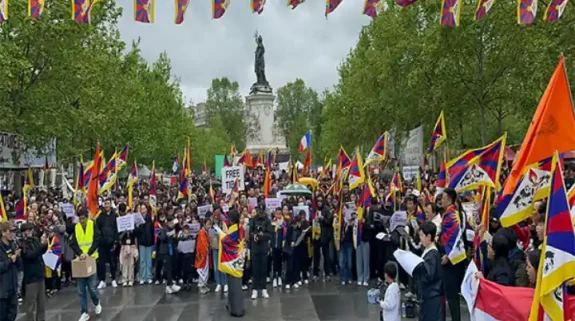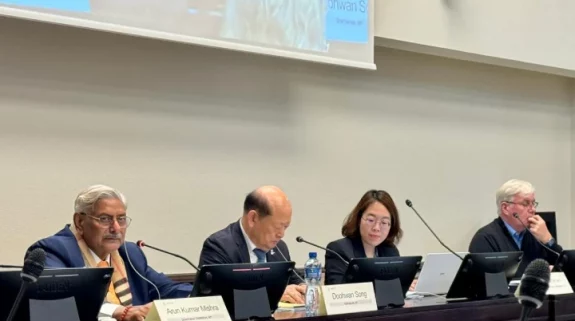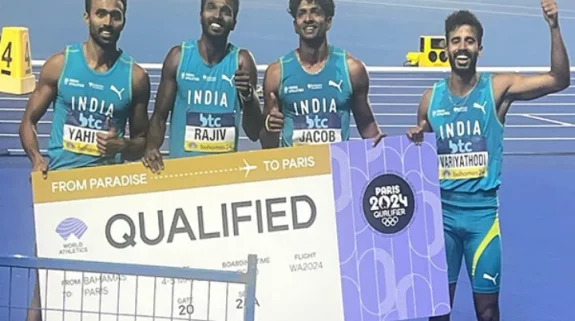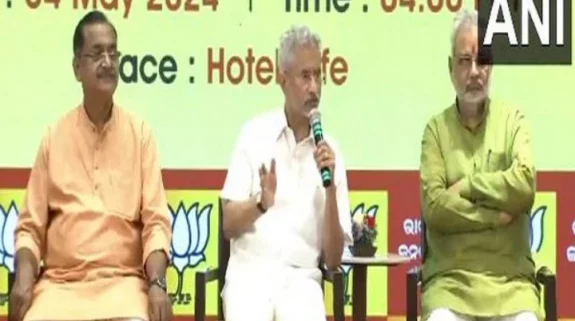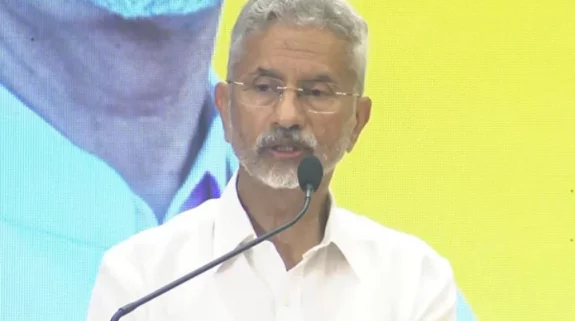A five-judge Bench of the Supreme Court of India will start hearing a batch of 23 petitions on abrogation of Article 370 by the Government of India through Parliament in August 2019. The hearing is beginning nearly four years after the reorganisation of the erstwhile Jammu and Kashmir State into the two separate Union Territories of Jammu & Kashmir and Ladakh.
According to a notice dated 3 July 2023 from the Supreme Court of India, the 5-judge Bench comprising Chief Justice of India DY Chandrachud, Justice Sanjay Kishan Kaul, Justice Sanjiv Khanna, Justice BR Gavai and Justice Surya Kant will take up hearing the Writ Petition titled Shah Faesal and others versus Union of India and others at 10:30 am on Tuesday, 11 July 2023 for passing directions.
In March 2020, a five-judge Constitution Bench decided not to refer the batch of 23 petitions to a seven-judge Constitution Bench, despite some petitioners seeking a reference. The petitioners argued that two Supreme Court judgments – Prem Nath Kaul v. State of Jammu & Kashmir and Sampat Prakash v. State of Jammu & Kashmir— which were rendered by five-judge benches and dealt with the interpretation of Article 370, were in conflict with each other.
The 5-judge Bench declined the plea of reference to a larger Bench, decreeing that there was contradiction between the two old judgements. In February 2023, the pleas were mentioned for early hearing before Chief Justice Chandrachud who asserted that he would “take a call” on listing the batch of the petitions on abrogation of Article 370.
In a significant development on 30 June 2023, when CJI Chandrachud arrived in Srinagar for inauguration of the 19th All India Legal Services Authorities meeting, former J&K Chief Minister and President of Peoples Democratic party Mehbooba Mufti tweeted: “Welcome CJI to Kashmir. Article 370—a constitutional commitment of this nation to the people of J&K was illegally revoked. This despite earlier SC rulings against its abrogation. It’s been four years yet the matter is still pending before the honorable court”.
We need to use social media which is an effective form of communication today to reach out to the target beneficiaries; CJI DY Chandrachud urges legal services institutions during All India Legal Services Meet at SKICC in Srinagar. pic.twitter.com/LF63P4Apc6
— Mohsin Dar (@mohsinahmaddar) July 1, 2023
“Thousands of our youngsters are languishing behind bars without recourse to a trial. The process itself has become the punishment. J&K acceded to India out of choice & not compulsion. Then why is it being deprived of basic fundamental rights & guarantees given by the constitution itself? I earnestly hope your presence throws light upon these pressing issues”, Mehbooba addressed the CJI.
In his address at the inauguration, among others attended by CHI Chandrachud and Justice Sanjay Kishan Kaul, Lieutenant Governor Manoj Sinha argued that for almost seven decades, Article 370 prevented Central legislations from benefitting a large section of (the J&K) society. “It also denied benefits of legitimate citizenship to a sizable section of the society. Abrogation of Article 370 ensured social equity and inclusive development”.
Knowledgeable sources insist that an order was likely to be passed on 11 July on the J&K cadre IAS officer Dr Shah Faesal’s submission, seeking withdrawal of his petition against the abrogation of Article 370. If these well-placed sources are to be believed, a number of the petitioners, whose 23 petitions on the subject are under the hearing, are filing fresh petitions seeking withdrawal of their petitions.
The IAS topper of 2010, Shah Faesal, who resigned in January 2019 and launched his own political party under the title of “Jammu and Kashmir Peoples Movement” (JKPM) was among the first who filed petitions in the Supreme Court of India, challenging the August 2019 legislation by the Parliament. Faesal subsequently withdrew his resignation from IAS and petitioned the Supreme Court of India seeking withdrawal of his petition against abrogation of Article 370. A decision on his plea is currently under consideration.
Meanwhile Faesal’s November 2021 application seeking withdrawal of his resignation was accepted by the Government of India and he was reinstated into service in April 2022. Soon he was sent on a Central deputation and posted as a Deputy Secretary to the Government of India in the Ministry of Culture.
In addition to Faesal, a wide range of lawyers, activists, politicians and retired civil servants are among the petitioners on abrogation of Article 370. They include J&K National Conference’s Lok Sabha members Justice (retd) Hasnain Masoodi and Mohammad Akbar Lone, CPI (M) leader Mohammad Yousuf Tarigami and former BBC journalist Satish Jacob.
Other petitions are from J&K PDP, J&K Peoples Conference, former interlocutor Prof. Radha Kumar, former J&K bureaucrat Hindal Haider Tyabji, who died in January 2023, advocates ML Sharma, Soayib Qureshi, Muzzafar Iqbal Khan, Rifat Ara Butt and Shakir Shabir, artist Inder Salim, retired Air Vice Marshal Kapil Kak, retired Major General Ashok Kumar Mehta, Amitabh Pande, a former Secretary to the Inter State Council of the Government of India, and former Union Home Secretary Gopal Pillai.
In her immediate reaction to the 3 July notice of the Supreme Court of Indian, PDP President Mehbooba Mufti tweeted: “Welcome Hon’ble SC’s decision to finally hear petitions pending since 2019 challenging the illegal abrogation of Article 370. I hope justice is upheld & delivered for the people of J&K. The SC ruling on Article 370 maintained that the provision can be abrogated only on the recommendation of the J&K constituent assembly”.
Former J&K Chief Minister and the J&K National Conference Vice President Omar Abdullah too welcomed the SC notification. He tweeted: “Finally the bench is constituted. I look forward to the hearings beginning in right earnest now. #article370 #jammuandkashmir #SupremeCourtofIndia”.






